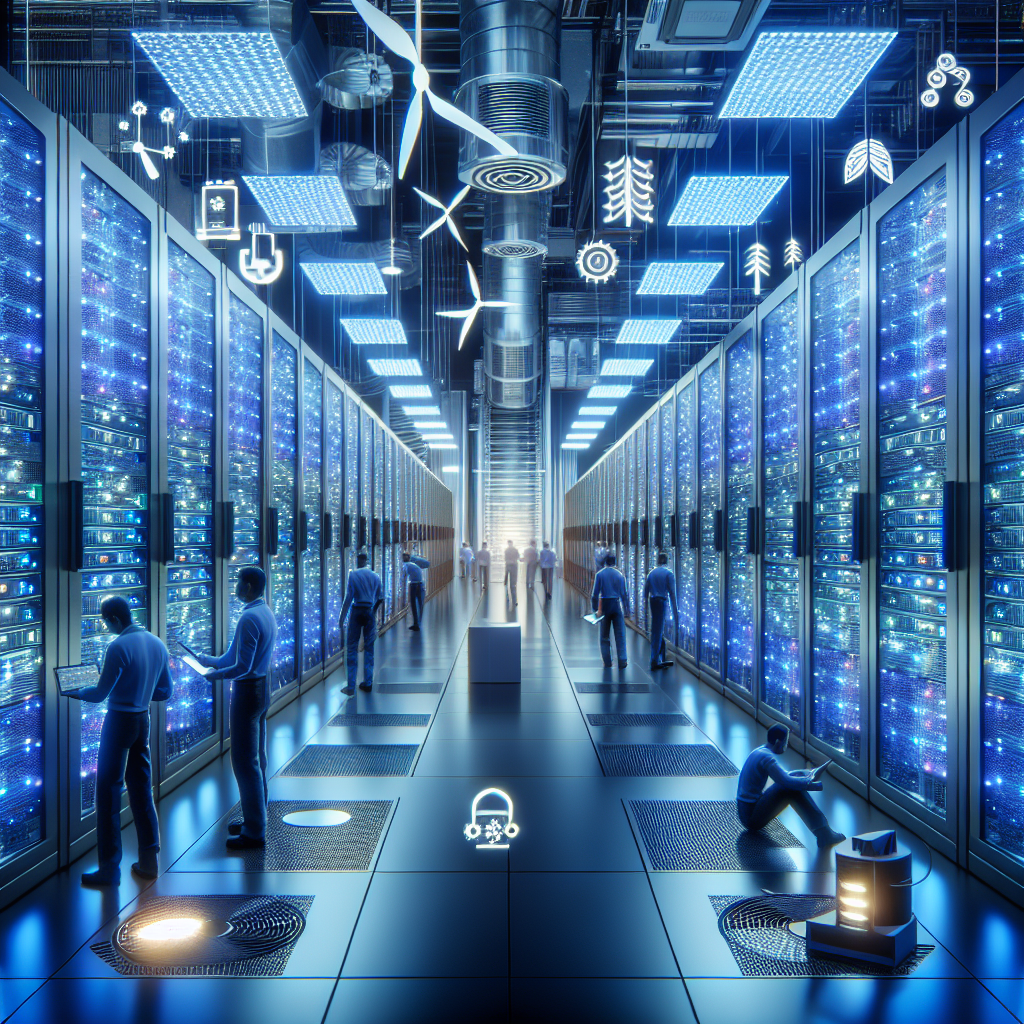As technology continues to advance at a rapid pace, the data center industry is constantly evolving to keep up with the growing demands of data storage and processing. One crucial aspect of data center infrastructure is the HVAC (heating, ventilation, and air conditioning) system, which plays a vital role in maintaining optimal operating conditions for servers and other equipment.
In recent years, there have been several key trends and developments in data center HVAC that are shaping the future of this essential component. These include advances in energy efficiency, the adoption of new cooling technologies, and the increasing focus on sustainability.
One of the most significant trends in data center HVAC is the push towards greater energy efficiency. Data centers are notorious for their high energy consumption, with cooling systems often accounting for a significant portion of this usage. To address this issue, data center operators are increasingly turning to more efficient HVAC systems that can help reduce energy costs and minimize their environmental impact.
One way that data centers are improving energy efficiency is through the use of advanced cooling technologies such as liquid cooling and direct-to-chip cooling. These systems are designed to more effectively remove heat from servers and other equipment, reducing the need for traditional air conditioning units and lowering overall energy consumption.
Another key development in data center HVAC is the growing emphasis on sustainability. As concerns about climate change and environmental impact continue to rise, data center operators are under increasing pressure to reduce their carbon footprint and operate in a more environmentally friendly manner. This has led to the adoption of green building practices, such as using renewable energy sources and implementing energy-efficient HVAC systems.
In addition to energy efficiency and sustainability, data center operators are also focusing on improving reliability and resilience in their HVAC systems. Downtime can be extremely costly for data centers, so it is essential that cooling systems are able to maintain consistent temperatures and humidity levels to prevent equipment failure and data loss.
Looking ahead, the future of data center HVAC is likely to be shaped by continued advancements in technology and a growing emphasis on sustainability and efficiency. As data centers continue to expand and evolve, it will be crucial for operators to stay ahead of the curve and invest in cutting-edge HVAC solutions that can meet the demands of tomorrow’s data-driven world. By staying abreast of the latest trends and developments in data center HVAC, operators can ensure that their facilities remain at the forefront of innovation and efficiency in the years to come.


Leave a Reply